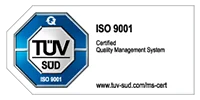How non-tech star-up founders deliver tech product in market?
- Blog How to take a tech product to market if I’m a non-tech start-up founder?




How to take a tech product to market if I’m a non-tech start-up founder?
 How to take a tech product to market if I’m a non-tech start-up founder?
How to take a tech product to market if I’m a non-tech start-up founder?
Do you have a game-changing idea that could revolutionise the way people work and live? Would you like to launch an app or website that helps many more customers access your services?
Your awareness of the possibilities of developing a digital product is great, but how do you get your idea off the ground if your expertise lies in accounting, logistics or running a café rather than tech development?
The lack of a specialist technical background needn’t stop you from turning the fruit of your creative imagination into something real and marketable. You just need to apply your existing entrepreneurial and management skills in controlling and advancing your project, in collaboration with the right technical partner.
Don’t let a lack of tech expertise stop you
We can’t all be Jeff Bezos or Mark Zuckerberg, and nor would we want to be. You can drive and contribute to a successful app development and marketing project; there’s much that you’ll be bringing from a business perspective which is absolutely essential from day one of an app development project.
In fact, as a non-technical business founder, you may avoid a basic, but all too common, error in app building; you have the business knowledge and skills to look at the wider business application picture before the coding even starts. Your considerations should include:
- Take time to consider your idea and what potential customers actually want and need. Take this time to validate your business ideas and look at what already exists on the market. Laying these foundations before you start a line of code will pay dividends.
- Create a plan. Understand your strengths and weaknesses and build a detailed plan and strategy from which you can give more detailed instructions to those who will build your product.
- Make an MVP. This doesn’t have to be a polished, tech-based end-product. At this stage you just need a Minimum Value Product to communicate what you want to achieve and get customers excited at the prospect.
- Build connections in useful sectors and immerse yourself in the right groups to help inform your ideas and build potential connections to benefit you and the business. This builds interest and momentum around your product idea and leads into your sales strategy.
- Engage the technical experts. whether freelance, in-house or outsourced, app developers can bring the expertise you need to start product development.
- Remain focused. Ensuring you have your priorities right and keeping those around you focused on the right thing will drive momentum and lead those you work with to success.
Building a strong team with a clear goal is where non-technical founders can excel. Once you have a clear business model you will find that attracting the right kind of technical partner becomes easier because they appreciate having a clear sense of your objective and you can look for the skills that you lack in-house and identify the knowledge gaps you need to bridge.
Finding your tech partner
Many larger organisations outsource to find the specialists they need in a desired field. If you are a non-technical founder of a start-up, finding the right tech partner should inject the technical know-how you need to take advantage of the many benefits of outsourcing:
- Speeds up development by using ready-established teams to stay ahead of competitors.
- Accelerates the time to market, building proof or product reliability and interest, attracting investors.
- Uses the experience of tech partners experience to avoid pitfalls and costly mistakes.
- Avoids delays in development time while you’re looking for and hiring new personnel.
- Quickly scales staffing to suit the different stages of development, so you only pay for the people you need at the time.
- Lets you focus on your own areas of strengths while a technical partner delivers on the areas in which you need support.
The right technical expertise isn’t just about bringing your product to life; a good partner will also bring their own entrepreneurial and business experience to your project so that your new product will have a greater probability of being a hit with customers, expanding your market, generating a revenue and being adaptable to new demands and market changes in the future.
Your economy needs you and your start-up idea!
We’ve all experienced challenging times during the global pandemic, and now, more than ever, start-up businesses are needed to kick-start the economy. And new ways of living and doing business have emerged which require new thinking and technology. Where there is change, problems arise to be solved, along with the opportunities to drive new solutions.
Innovation can lead to economic growth and create new jobs, so start-up businesses are in a great position to contribute, being agile and adapt more easily to fast-changing environments, making them quick to react and better able to survive in the most challenging of environments. They are quick to respond to customer needs and have a culture driven by success.
Not just the owner and employees benefit from the foundation of a new start-up; the new technologies they introduce can also improve efficiencies for other businesses, and investment in start-ups spreads the wealth. The disruptive nature of start-ups can create new markets and transform existing ones with new products and innovation in processes, to the benefit of the whole economy.
A synergy of technology and business skills
Being a non-tech business founder doesn’t mean you can’t launch your own tech start-up or create your own business app. But finding a partner with the right mix of technical and business skills can greatly accelerate getting your product to market. At Incepteo, we leverage decades of entrepreneurial experience to support clients from concept to marketable product.
Our development teams spend a significant amount of time looking at the business aspects of an app before we even start on the coding. They include a wide range of business expertise, including: analysts to look at customers’ business processes and systems and develop a business strategy for the app; user experience (UX) experts for a customer-friendly product and branding and marketing specialists to ensure a marketable end-product.
Incepteo customers come to us because we also help new ventures with funding through our wide investor network, connecting customers with the right backers at the outset. We also offer mentoring, providing the resources of a mature business and connecting with our own trusted network so that new entrepreneurs don’t have to reinvent the wheel.
We also bring an Agile approach and methodology to the project, with project leadership experience to ensure the shortest time to market for SaaS platforms. We aim to form ongoing longer-term software delivery partnerships with our customers to help with future development and product adaptation.
The range of services that a good tech partner brings enables even the least technical customer to address many of the problems which can arise from developing an MVP, such as dealing with software that isn’t scalable or ideas that have become outdated in a fast-moving market.
If you’ve any more questions about whether you can market your own technical solution to your customers’ problems, we’re always happy to give our opinion. We love nothing more than helping businesses in any sector to join the tech firms and claim their share of the new digital market by developing their own bespoke product or service.
Share this:
Recent Posts
- Strategic Engagement Models with Technology Service Companies: The Incepteo Approach
- The CTO Advisory: Why Your Startup Needs Expert Technology Guidance
- AI Development Predictions 2024: Anticipating the Next Phase of Innovation
- Revolutionizing Mobile App Development 9 Innovative Technologies Leading the Change
- Ensuring Mobile App Security: 7 Vital Measures Every Developer Should Implement
By Sector

How Can Incepteo Help You?


Quick Links
AI SERVICES
2024 © All rights reserved by Incepteo
 How to take a tech product to market if I’m a non-tech start-up founder?
How to take a tech product to market if I’m a non-tech start-up founder?